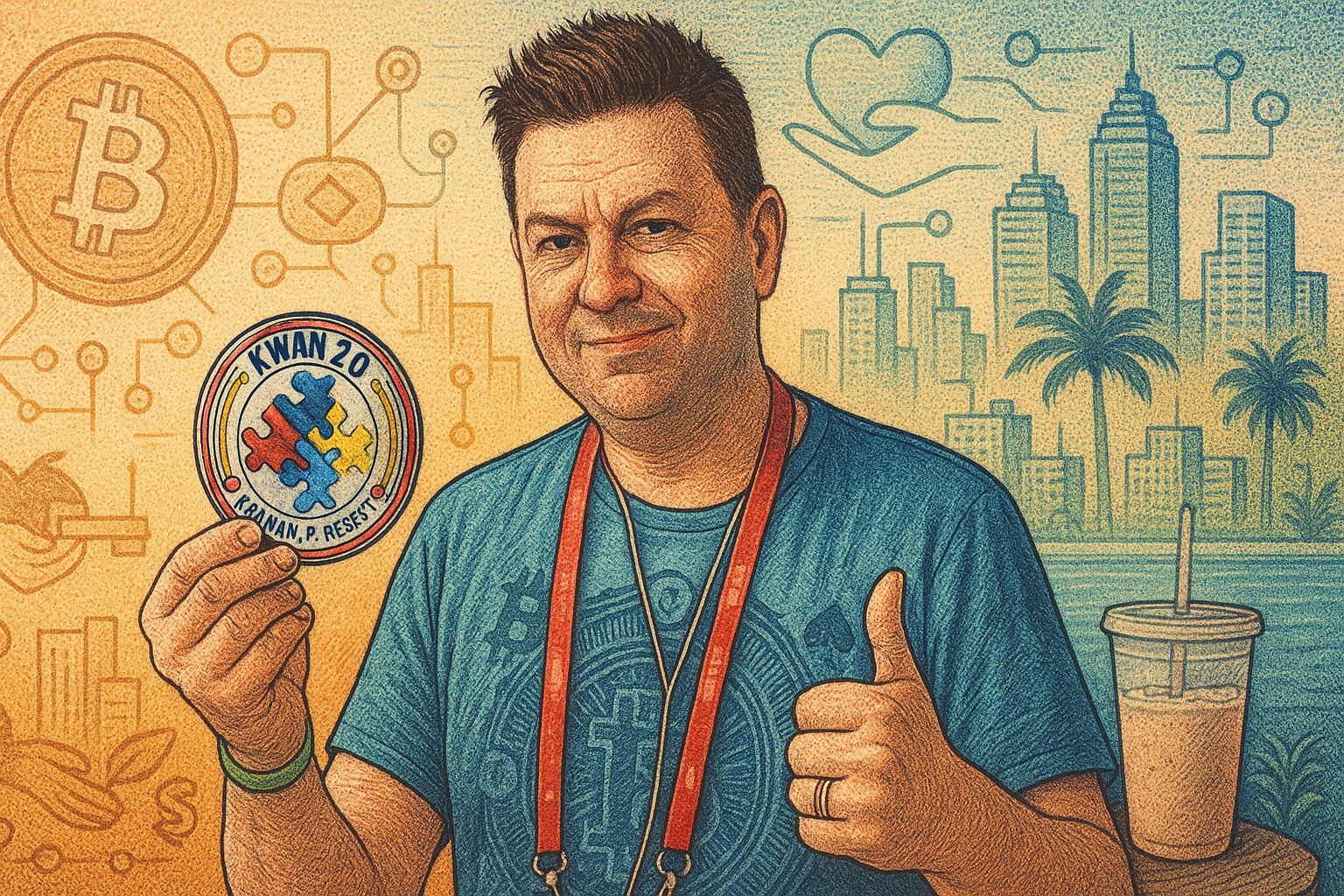Barry Mezey is no stranger to reinvention. Once a high flying sports and celebrity marketing agent, the Miami based entrepreneur is now building a different kind of legacy; one grounded in mental health advocacy, blockchain innovation, and a deep personal mission to uplift adults with special needs.
His creation, the Barry Mezey Foundation for Autism, Inc., and its companion cryptocurrency KWAN 2.0, are part of what Mezey calls the world’s first charity based utility token designed specifically to support autistic and neurodivergent individuals with jobs, services, and access to basic resources. Launched in 2021, the initiative now claims a hybrid model that straddles nonprofit service delivery and for-profit crypto innovation, all rooted in Mezey’s own lived experience with autism, bipolar disorder, and Tourette’s.
From the Sidelines to the Spotlight
Before entering the world of blockchain, Mezey had a marquee career as a sports agent, working with stars like NBA great Tim Hardaway, MLB pitcher Curt Schilling, and tennis champions Conchita Martínez, Pat Cash, and Rosie Casals. But after years of navigating the sports business and battling stigmas around his neurodivergence, he pivoted out of the spotlight to focus on philanthropy.
In 2021, inspired by his late father’s 25-year battle with Parkinson’s and his mother’s early advocacy work in Miami’s Jewish community, Mezey launched the Barry Mezey Foundation to address what he saw as a massive gap in support for adults with autism and mental health challenges.
At the heart of that foundation: KWAN 2.0, a Binance Smart Chain (BSC) based utility token that funds job creation, affordable housing, counseling, food, and more for individuals with disabilities.
The KWAN 2.0 Model, “Utility with Purpose” is built on an unusually direct mission: employ people who are statistically left behind. Mezey cites a staggering 97% unemployment rate for adults with autism and other mental health conditions.
The foundation primarily serves adults 18 and over, with a focus on college age individuals. Mezey says community feedback has been overwhelmingly positive, particularly among those who’ve been hired to produce or edit content.
He also credits his early activism in South Florida for laying the foundation. At just 10 years old, Mezey helped his mother co-found a special needs program at the Alper JCC in Miami, one of the first of its kind in the area.
While crypto ventures often chase Silicon Valley glitz, Mezey’s roots are planted in South Florida’s growing tech corridor. With its strong special needs advocacy networks, a wave of digital innovation, and emerging Web3 community hubs in Miami and Fort Lauderdale, the region may be the ideal proving ground for a purpose-driven crypto ecosystem.
